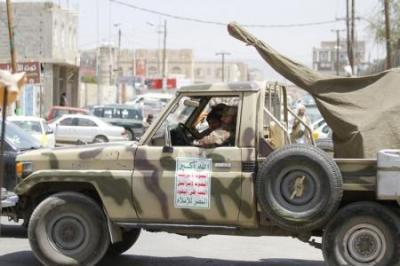Ansarullah: Yemen Army, Popular Committees Line up against Saudi Aggression

Ansarullah revolutionary movement stressed that the Yemeni army and the popular committees are standing in one line against the Saudi war on Yemen.
In an interview with al-Manar, Ansarullah official Ali al-Qahoum said that the Yemeni people will defend their country and its sovereignty against the Saudi attack.
“Time of guardianship and humiliation has gone. We’ll not be terrified by US’ threats,” Qahoum said on Thursday after the Saudi envoy to US Adel al-Jubeir declared the war on Yemen from Washington.Popular committees in Yemen
The Yemeni army and the popular committees are standing in one line to confront the foreign offensive, Ansarullah official said, describing the attack as war declared by the US and its allies in the regions against the Yemeni people.
Meanwhile, al-Qahoum denied reports which said that Ansarullah commanders were killed by the Saudi raids, confirming that the victims of the strikes are all civilians.
Earlier on Thursday, warplanes of the Royal Saudi Air Force bombed several positions in Sanaa and launched attacks against the capital’s airport and the Dulaimi airbase.







